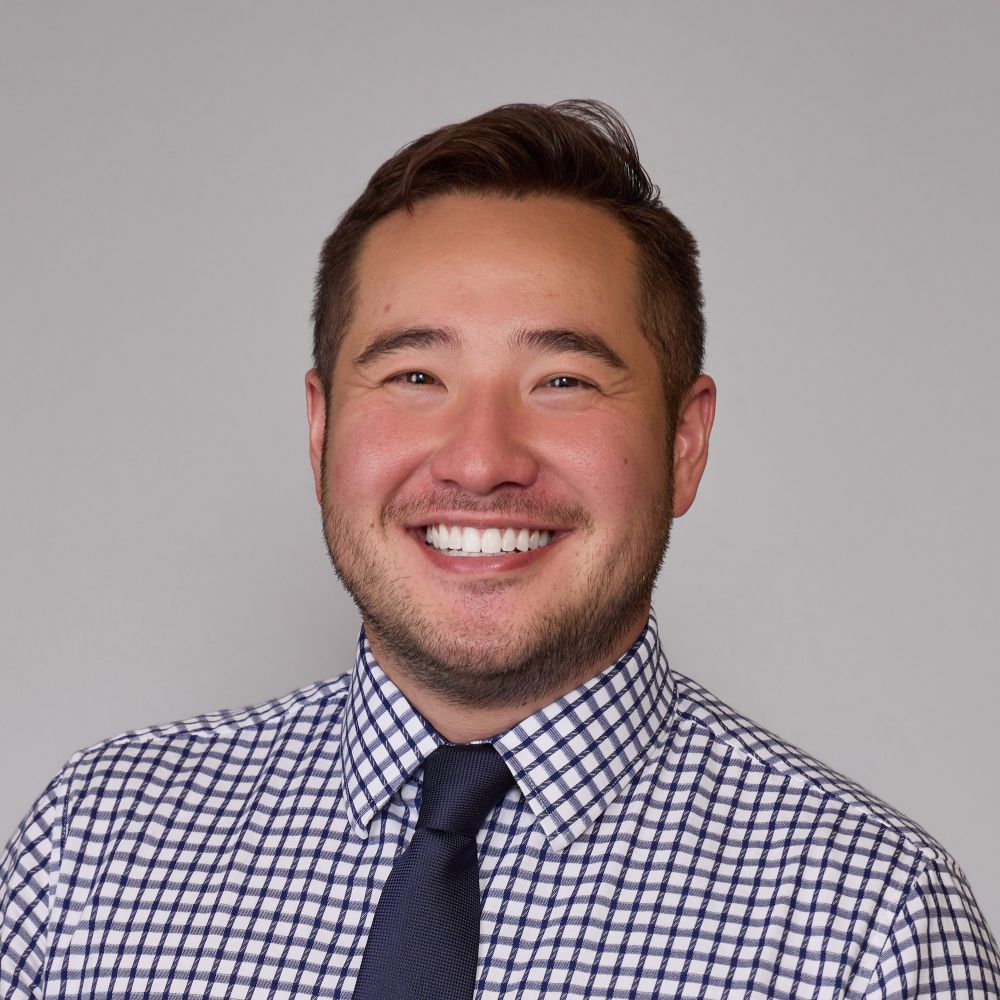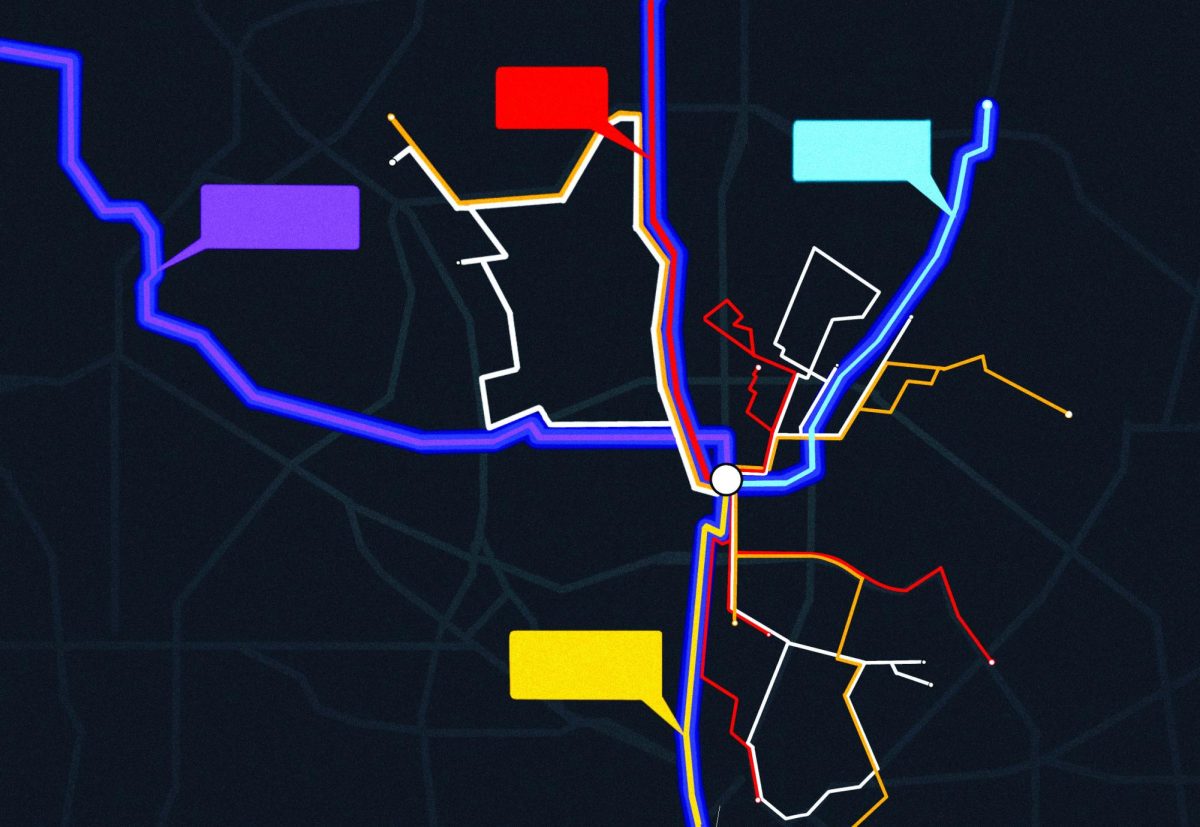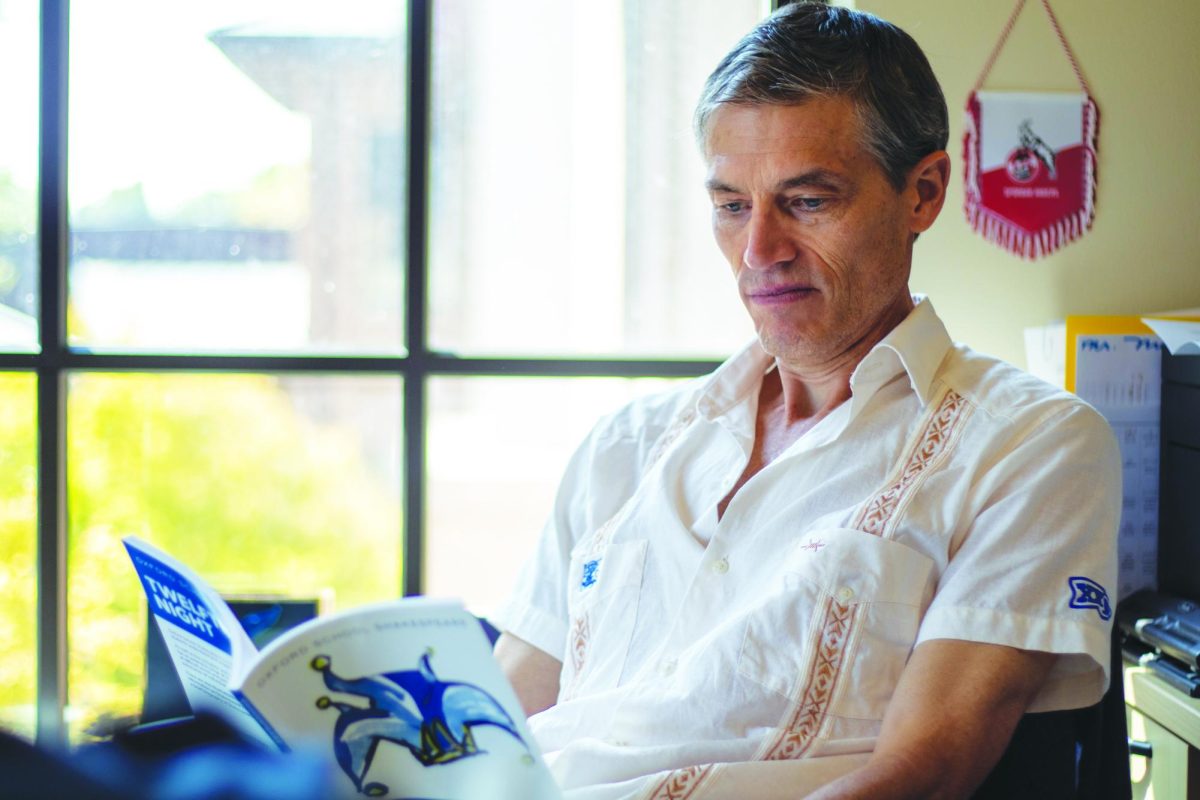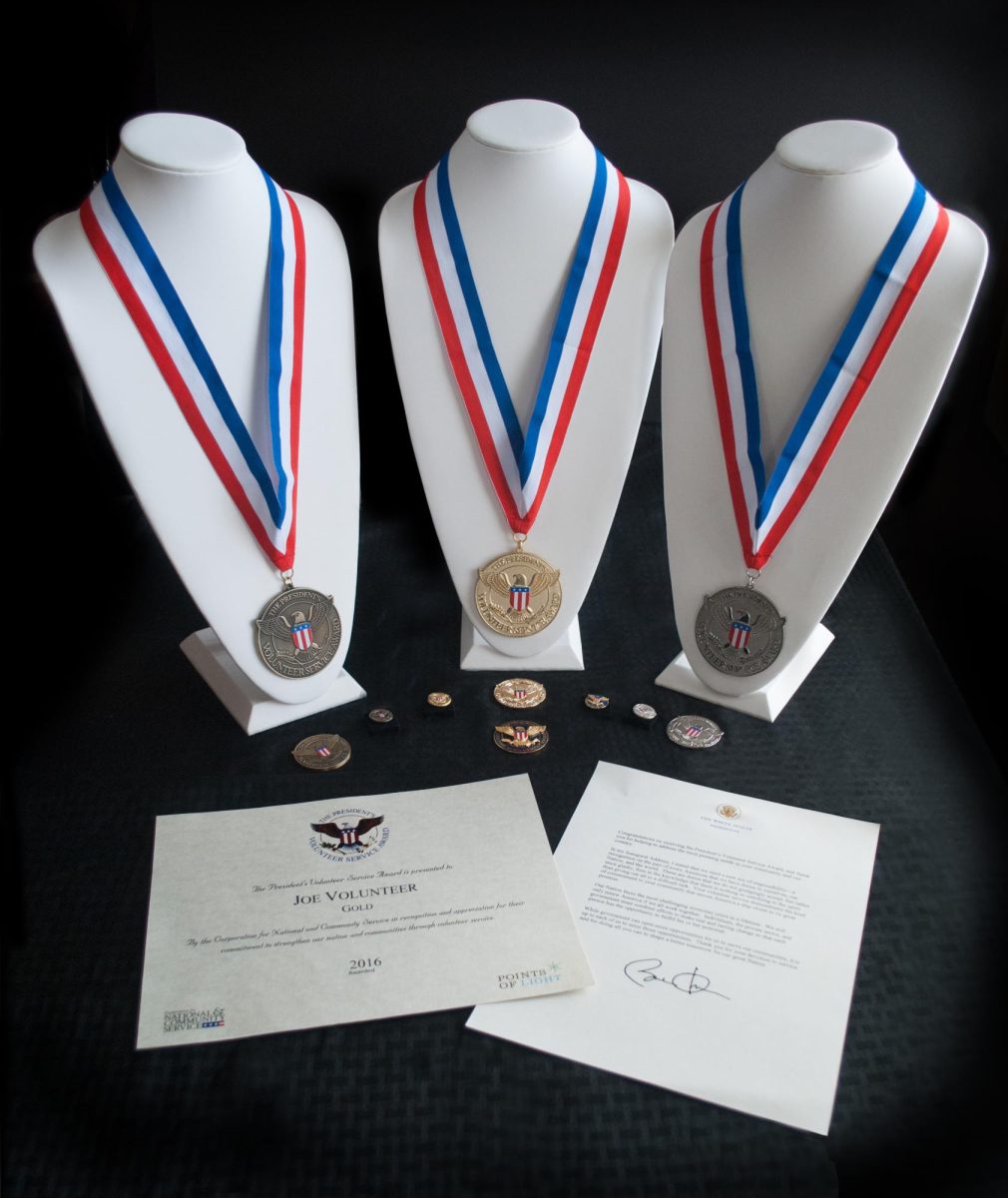When answering the question ‘What is the story you want to tell?’, sophomore Kazim Hussain became troubled. Feeling befuddled by the prompt assigned to him by the Literary Festival guest writer, Hussain walked to the front of Nearburg 114 to converse with ethicist and theologian Dr. Elizabeth Kincaid.
This question was one of four questions first posed to the class. The fifth? A question humans have been trying answer since the beginning of time: ‘What does a good life look like?’
Kincaid, a native of Higland Park, Texas and former student of Victor F. White Master Teaching Chair David Brown at Highland Park High School, used her time with upper school students to discuss writing in ethics and tradition-based reasoning. After walking them through a modern-day example involving the relationship between Kanye West, hip-hop culture and the Black church, she posed five questions to Marksmen, all involving how their own background and values influence what they want in life. Kincaid has found that looking internally has great significance.
“I can tell them all the stuff about Aristotle,” Kincaid said. “It’s a lot of facts, right? I think the goal of being formed as an ethical person is learning how to engage in ethical reflection.’”
Kincaid’s style of teaching ethics has been inspired by her previous educational experiences and developed through years of experience. After graduating from Highland Park, Kincaid received her B.A. from Rice University in 2002, followed by a J.D. from the University of Texas at Austin’s Law School in 2005.
“I got good grades in a lot of history and english courses at Rice, and for most people who do that, the logical next step is law school,” Kincaid said. “I found it incredibly challenging. At this point, we were doing the Socratic method. I loved working with the cases. What I practice now—tradition-baed reasoning—isn’t that much different than law school. Working with common law and engaging with historic cases is the same.”
After a career as a white-collar criminal defense attorney, Kincaid turned to the business world as a private equity professional dealing with high-profile companies and their workplace practices. Wanting something more fulfilling, she turned her focus to researching virtue ethics with Jesuit and Catholic theology. She now serves as the Legendre-Soulé Chair in Business Ethics & Director of the Center for Ethics and Economic Justice at Loyola University New Orleans. Although she currently works with high-level, complex ethical problems, Kincaid can trace her experience of knowing the difference between right and wrong back to as early as four years old.
“I was taking a nap, and kept getting up to play with my tea set,” Kincaid said. “My parents came in and asked, ‘Were you out of bed?’ And I would say that I wasn’t, and then they would leave. I’d get up and sneak to play with the tea set. Of course, my parents, who were watching through the door, came in and were like ‘You are lying to us.’ And I was. And I knew it.”
That experince is one that Kincaid recalls when thinking about the simplicity and commonness of ethical decision making. She believes that looking introspectively allows one to better understand their own perspective, which will enhance their sense of morality something — she has been able to do since working in ethics full-time. She finds this work equally challenging as her previous endeavors, but more fulfilling.
“It’s challenging in a different way,” Kincaid said. “They are all highly abstract and demand a lot intellectually. There is a high expectation. I am in a publish or perish world. But, I get to answer questions I care about more. When I’m up late writing, and I don’t always want to write, I feel excited in a way I didn’t when I was doing legal work.”
The work of an ethicist is intended to be an analysis and interpretation of humanity and its moral condition. Kincaid, now a prominent researcher in the theologic sphere, has seen herself grow as her work continues.
“I am more myself,” Kincaid said. “I’m more the person I was called to be. By having the freedom to live this type of life. I’m really grateful because it doesn’t work out this way for everybody. There are a lot of people I know are smarter than I am who have not had the opportunities I’ve had. I actually have a job where I wake up everyday and say ‘this is fun.’”








